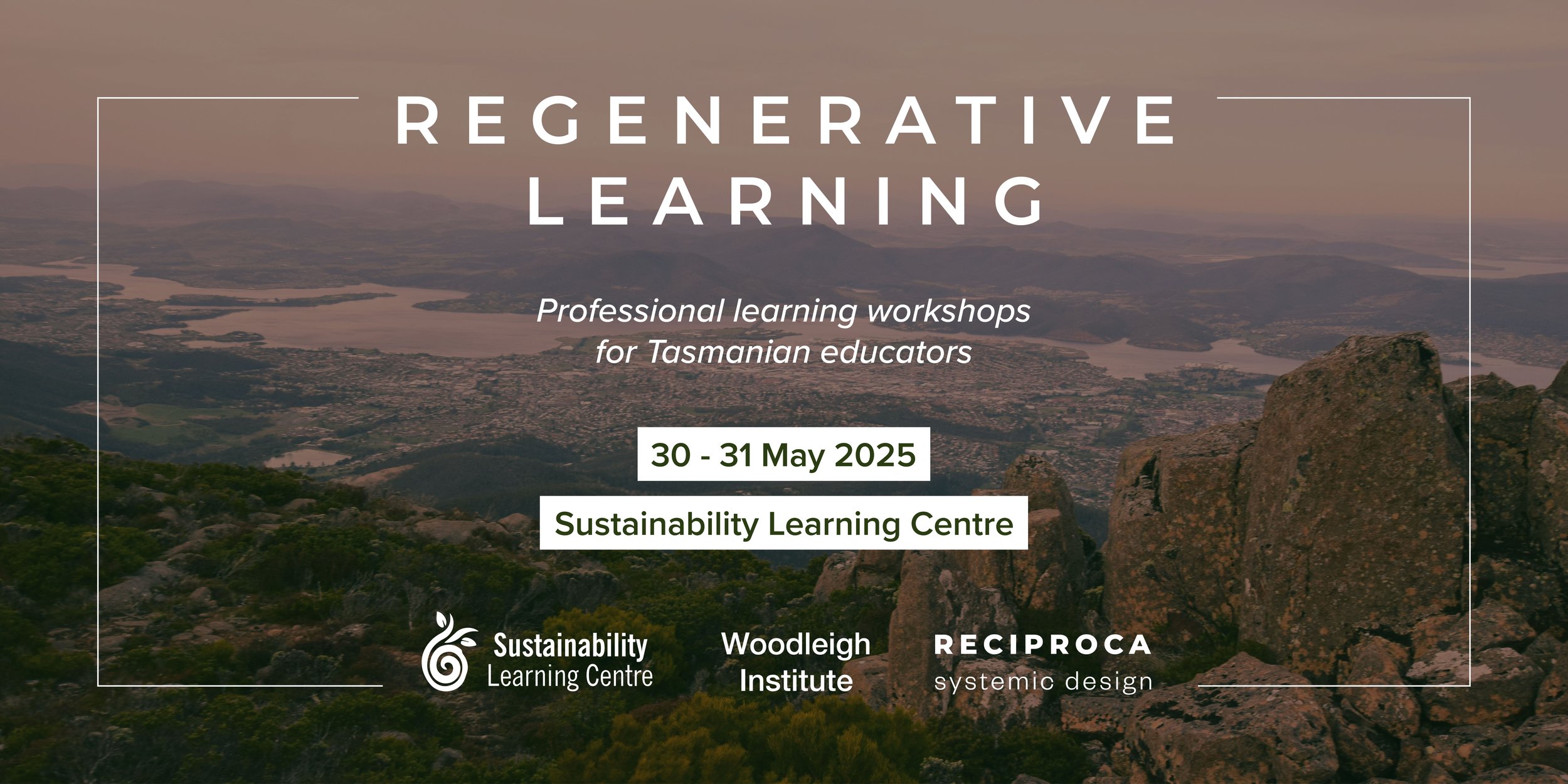
Regenerative Learning
Duration and delivery mode
1 .5 day onsite workshop
Dates
30 - 31 May 2025
Location
Sustainability Learning Centre - 50 Olinda Grove, Mount Nelson Tasmania 7007, Australia
Facilitators
Kim Shore is the Co-Foundrer of Khoreo and a profesional fellow at UTS. Kim is a multi-disciplinary strategic designer using the power of design, learning and collaboration to make products, systems and strategies for a regenerative future.
Kim is responsible for leading projects and portfolios that drive systemic change. Kim brings a diverse experience — from international climate law and legal innovation, to learning design and climate education, and to public sector innovation and product design. He takes a transdisciplinary approach — integrating design practice, futures, research and systems thinking to work on complex challenges.
Dr. Richard Owens is the Director of the Woodleigh Institute, an innovation lab dedicated to exploring regenerative learning and the role it can play in building the capacity of young people to contribute to the thriving of people, places, and our planet. He is a member of the leadership team at Woodleigh School, with responsibilities for learning and innovation.
Richard is the Convenor of ReimaginED, a participatory conference series focused on the emerging futures for education. He is also a member of the Global Leadership Team for the Center for Systems Awareness and of the Capabilities for Life faculty at the RSA.
Access
Open
Cost
$500 (+ GST + booking fee)
Registration
Registration is open
About
This workshop will explore how teachers can integrate regenerative principles and practices into their teaching, curriculum design, and school culture. Regenerative learning is an emerging approach to education that draws on the fields of sustainability, systems thinking, wellbeing, and social-emotional learning. Through interactive activities, collaborative discussions, and experimentation with a range of practical tools, participants will delve into how a regenerative approach to learning can contribute to the thriving of people, places, and the planet.
Learning Outcomes
By the end of this workshop, participants will:
Understand the principles of regenerative learning and how they differ from traditional and sustainability-focused education.
Explore practical strategies for embedding regenerative practices into teaching, learning, and the development of school-based projects.
Develop skills in systems thinking to help students develop collaborative solutions to complex real-world challenges
Learn practical strategies to foster compassion, emotional literacy, and wellbeing in classrooms, staff rooms, and schools
Learn how to create learning environments that empower students to become active contributors to regenerative cultures and futures.
Collaborate with peers to design a project or initiative that applies regenerative principles in their educational context.
Reflect on their own teaching practices and identify opportunities for personal and professional growth in alignment with regenerative values.
Audience
Designed for primary and secondary teachers, school principals or assistant principals with an interest in sustainability education, wellbeing, and regenerative learning. We encourage teams of teachers to attend, where possible.
This program is available to the following school sectors:
Tasmanian Government
Catholic
Independent